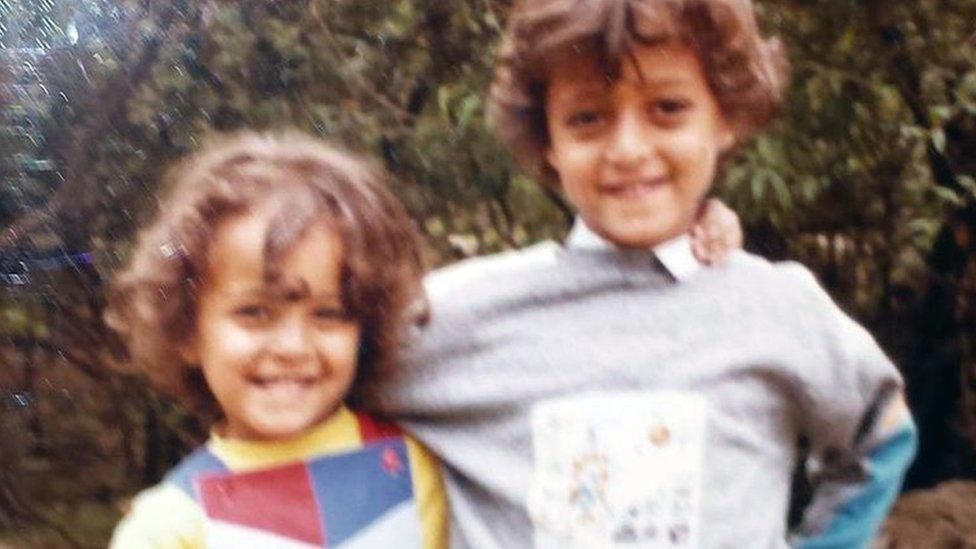Yemen facing total collapse as war continues, UN warns
- Published
The UN says it is struggling to deliver medicine to treat those with cholera because of the ongoing conflict.
The United Nations humanitarian chief has said Yemen is facing "total social, economic and institutional collapse".
Stephen O'Brien told, external members of the UN Security Council that "urgent action is required to stem the suffering".
More than two years of civil war in the country has triggered a humanitarian crisis, with almost seven million people on the brink of famine.
A resurgence of a cholera outbreak has also resulted in 60,000 suspected cases since April and 500 associated deaths.
Mr O'Brien said the suffering of Yemenis was not a coincidence, or the "result of forces beyond our control" - but rather the fault of those involved and inaction by world powers.
"The people of Yemen are being subjected to deprivation, disease and death as the world watches."
"Crisis is not coming, it is not looming, it is here today - on our watch," he added.
Mr O'Brien said that despite "very generous pledges" at a conference in Yemen in April, the UN's appeal for $2.1bn (£1.6bn) for humanitarian aid was only 24% funded.
For the past two years, the country has been embroiled in fighting between forces loyal to exiled President Abdrabbuh Mansour Hadi, backed by a Saudi-led multinational coalition, and those allied to the Houthi rebel movement.
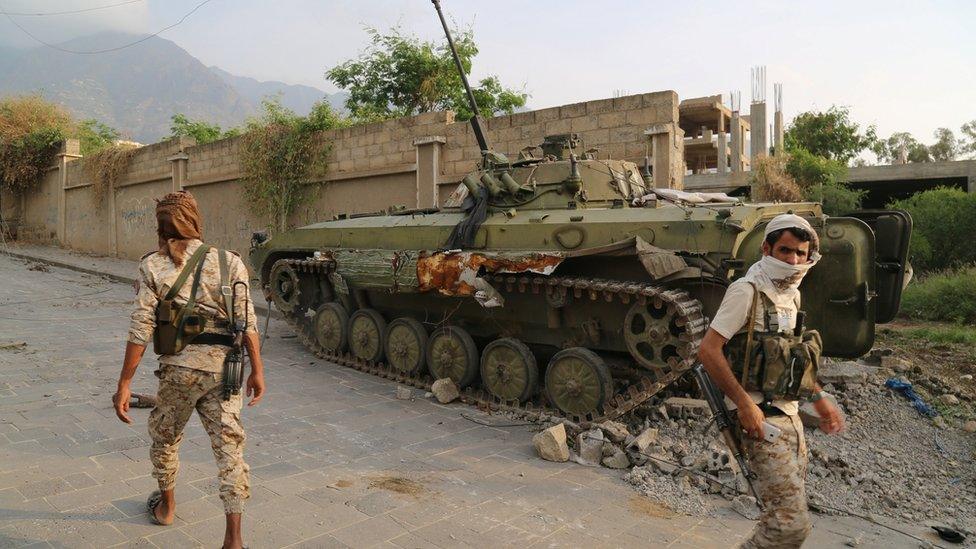
Pro-government forces are pictured near Taiz on 29 May
Al-Qaeda, meanwhile, has taken advantage of the chaos to reinforce its presence in the south and south-east of the country.
At least 7,800 people - mostly civilians - have been killed and 44,000 others injured since March 2015, UN figures say.
An estimated 18.8 million people are in need of humanitarian assistance.
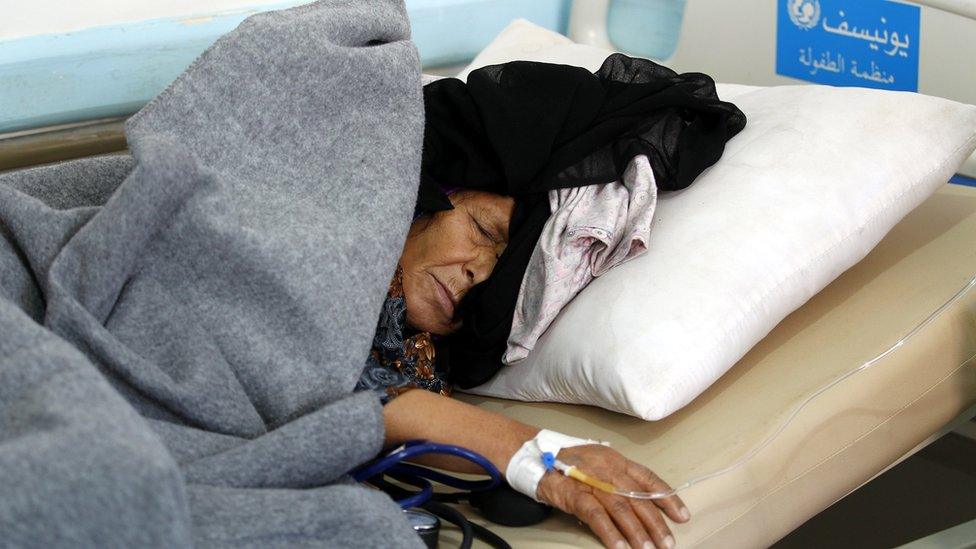
A cholera outbreak and food shortages are worsening the crisis in war-torn Yemen
Also speaking on Tuesday to the Security Council was the UN envoy for Yemen, Ismael Ould Cheikh Ahmed, who had just returned from talks in the country.
Neither side was willing to compromise, he said, and "the call for peace... is still falling on deaf ears".
"The reluctance of the key parties to embrace the concessions needed for peace, or even discuss them, remains extremely troubling," he added. "Yemenis are paying a price for their needless delay."
- Published28 March 2017
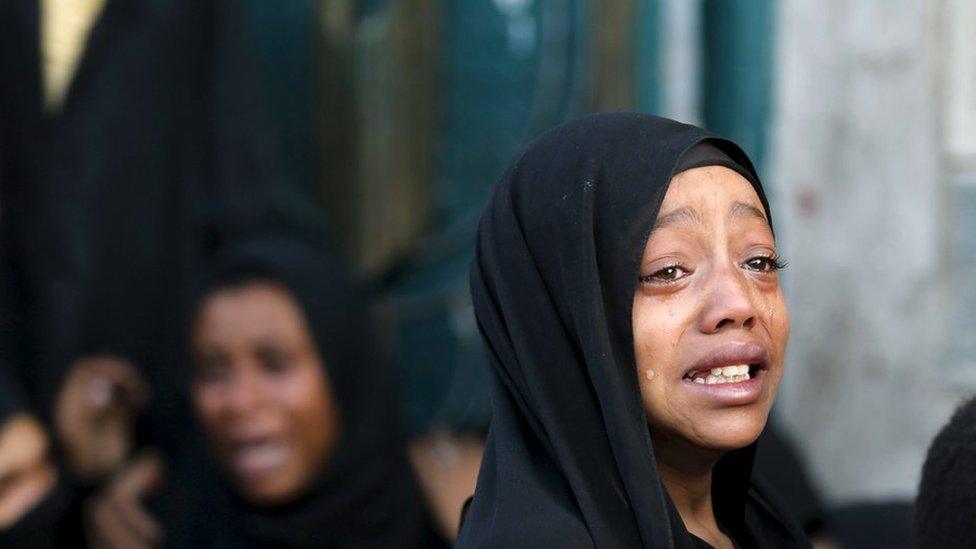
- Published14 April 2023
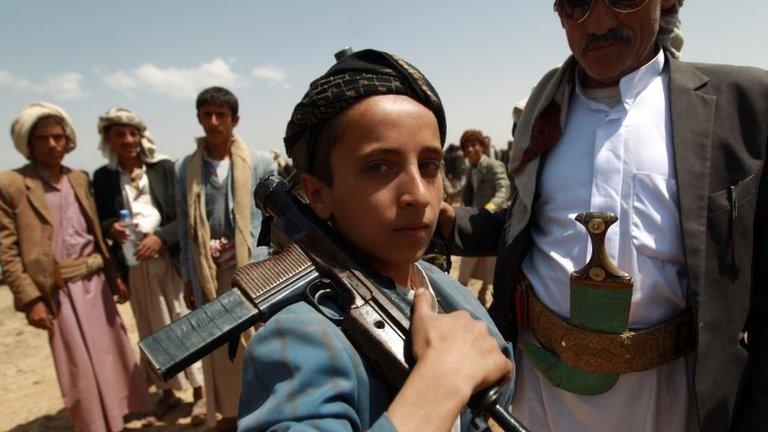
- Published26 March 2017
